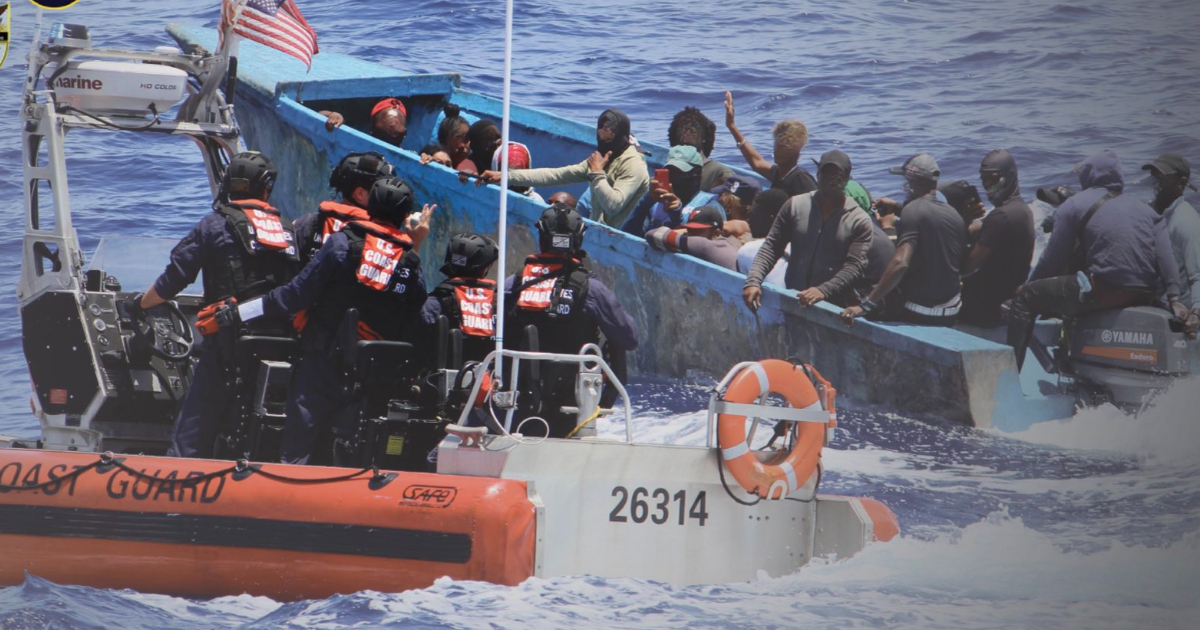A Cuban national could be sentenced to as much as 10 years in prison and fined up to $250,000 after pleading guilty to participating in a human smuggling operation in the Caribbean, according to a statement released Tuesday by the U.S. Department of Justice. Yuniel Cabrera Piloto, 44, along with Yordany Capote-León, 31, set sail from the U.S. to the waters of the Bahamas on October 24, 2024, aboard a cuddy cabin boat.
Piloto entered his guilty plea on March 6 before Magistrate Judge Ellen F. D’Angelo, whose recommendation for acceptance was later affirmed by Judge K. Michael Moore on April 4. Piloto's sentencing is scheduled for May 8 at 2:00 p.m. in Miami, where he could face up to a decade behind bars, followed by three years of supervised release, and a potential fine of $250,000. Capote-León, on the other hand, was sentenced on March 4 by Federal Judge K. Michael Moore to 37 months in prison, also followed by three years of supervised release.
The Smuggling Operation Unveiled
According to court documents, Piloto and Capote-León embarked on a journey to the Bahamian waters, where they picked up 18 Ecuadorian nationals lacking legal entry permits to the United States. During their return trip, the U.S. Coast Guard Cutter Manowar detected the vessel and tracked it to the vicinity of Key Largo, Florida.
Upon entering U.S. waters, Customs and Border Protection (CBP) agents aboard an Air and Marine Operations (AMO) aircraft attempted to intercept them. Despite orders to stop, Capote-León and Piloto only ceased their efforts after warning shots were fired by authorities. All 20 individuals aboard, including the two Cubans, were transferred to the Cutter Manowar, where it was confirmed that the 18 passengers were Ecuadorian migrants.
Among these migrants, three had previously been deported from the U.S. They were identified as Jorge Fabián Albarrasin Cabrera, Marcelo Patricio Pesantez-Merchan, and Juan Carlos Villa Arpi. These individuals, along with the two Cuban smugglers, were brought to shore to face federal charges and subsequently pleaded guilty. The remaining migrants were repatriated to the Bahamas.
Broader Implications and Ongoing Investigations
The investigation was led by Homeland Security Investigations (HSI), in collaboration with CBP and the U.S. Coast Guard's Seventh District. Special Prosecutor Tanner Stiehl is handling the case. In another related incident, Humberto Yosvany Arriola-Rivero, a 30-year-old Cuban, was recently sentenced to nearly a decade in federal prison for conspiring to smuggle people. According to an official statement from the U.S. Attorney's Office for the Western District of Texas, Arriola-Rivero was involved in the detention of undocumented immigrants and operated a safe house in El Paso.
In October 2024, another Cuban was apprehended in Arizona for transporting six Mexican migrants under illegal conditions. The 24-year-old was arrested by Border Patrol after attempting to evade a checkpoint and was charged with human smuggling and evasion of federal authorities. The same year, two Cuban nationals were arrested in La Joya, Texas, after they were caught transporting six undocumented immigrants hidden in their vehicles. One of the suspects even attempted to flee on foot when confronted by border agents.
Key Questions About Human Smuggling and Legal Consequences
What are the legal consequences for human smuggling in the U.S.?
Individuals convicted of human smuggling in the U.S. can face severe penalties, including lengthy prison sentences, hefty fines, and supervised release after serving their time. The exact punishment depends on the specifics of the case and federal sentencing guidelines.
How are human smuggling operations detected by U.S. authorities?
U.S. authorities employ various methods to detect human smuggling operations, including surveillance by the Coast Guard, Customs and Border Protection, and the use of technology in Air and Marine Operations. These agencies work together to monitor suspicious activities in U.S. waters and border areas.
What happens to migrants involved in smuggling operations?
Migrants involved in smuggling operations are typically subject to deportation proceedings. In cases where they have been previously deported, they may face additional legal consequences. Some may be repatriated to their country of origin or the location from which they attempted to enter the U.S.
